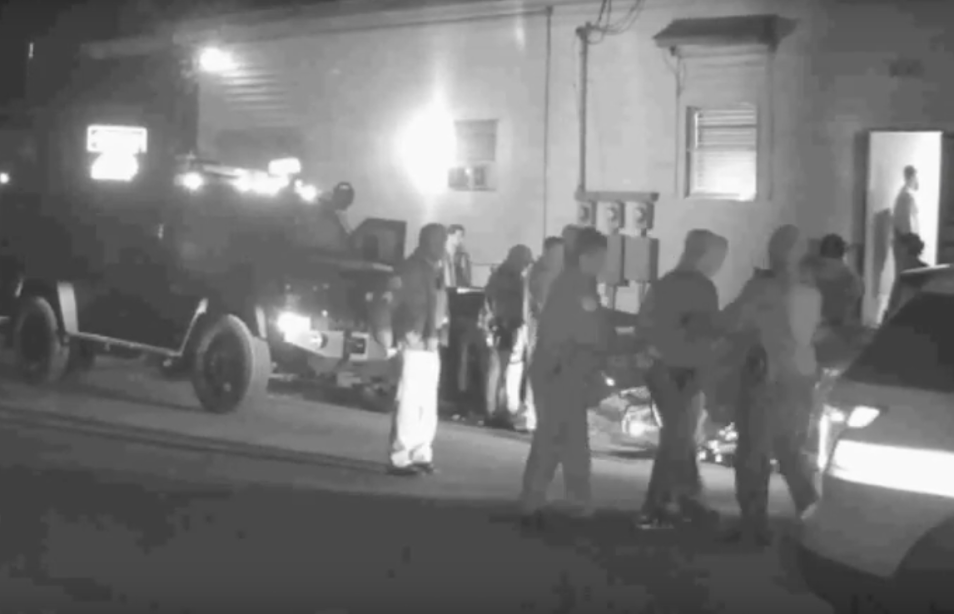
In January 2013, 26-year-old Lauren Tanski was fatally bludgeoned and strangled while attempting to protect a friend from the friend’s abusive boyfriend, a violent felon named Henry Dolliole.
Tanski’s murder followed numerous warnings, including incidents for which police were called to the 7th Ward residence Dolliole shared with the surviving woman and their two small children.
Though the murderer had multiple felonies on his record, many of the prior incidents of domestic abuse at the house did not lead to an arrest. According to a witness who prefers to remain anonymous out of concern for safety, on one occasion Dolliole made a violent threat, and, rather than arrest him, the responding officer personally vouched for Dolliole’s character by telling concerned neighbors that he knew Dolliole and considered him “all right.”
Four years later almost to the day, another couple got into a fight a few doors down the very same block on Urquhart Street. When the woman walked out of the residence, the man stormed after her and struck her in the back of the head. She crumpled to the sidewalk. Video from a surveillance camera showed the man then carrying the limp but still living woman back indoors.
When police arrived, the perpetrator refused aid for the injured woman, locking himself and the victim inside the residence. NOPD’s Special Operations Division ended an hours-long standoff by breaking down the door. The man, Nizam Baksh, 31, has been issued a stay-away order and awaits prosecution on a charge of second-degree battery. He was also stripped of his firearm.
[module align=”left” width=”half” type=”pull-quote”]Were we to focus on fighting crime half as much as we do on the performance of the Saints or whether our Facebook posts are sufficiently “liked,” we’d be a hell of a lot better off.[/module]A comparison of police responses and subsequent outcomes in these two cases points to important differences that are a credit to NOPD reform efforts. Under the consent decree imposed on the department by the federal Department of Justice, responding officers are obligated to recognize domestic violence as a serious crime, not just a petty private affair that can be brushed aside.
In the chapter dealing with domestic violence, the NOPD’s Operations Manual states:
“The Department has a pro-arrest arrest policy for domestic violence incidents. An officer shall arrest when he or she finds probable cause that a domestic violence incident occurred. However, if there is probable cause to believe that a victim of battering committed a misdemeanor, and that the victim of battering does not pose an impending danger to the other party, the officer has limited discretion not to arrest. To exercise this discretion not to arrest, the officer shall receive approval from a supervisor and document evidence supporting this decision in his or her report.”
If the good outcome in the 2017 case is testament to upgraded procedures, it also speaks to the value of video surveillance as a real-time crime-fighting tool.
At the request of a neighbor, the nonprofit New Orleans Police and Justice Foundation had installed the camera that yielded footage of the incident. Without it, police might not have been able to establish probable cause for the warrant that led to Baksh’s arrest and the stay-away order.
NOPD’s improved response to domestic violence and sex crimes is documented in a February 2016 report by the Independent Police Monitor, a position established in the consent decree.
We should applaud the improvements being made to NOPD practices under Superintendent Michael Harrison, but it’s not enough to sit by passively and expect progress to continue. Citizen involvement is vital to an effective police force. Communities should take an active role in curbing criminal behavior, even the kind — domestic disputes, for example — that is often wrongly considered a private matter of concern only to those directly involved.
NOPD’s mandate to shape the health of our communities affects all of us. We should partner with police to work on solutions to the violence crisis gripping New Orleans.
Expanded surveillance is a line item in the city’s forthcoming $40 million plan to fight crime. The cameras are an initiative fully deserving of public funds, provided that their positioning is data-driven, not just politically directed to make violence-plagued tourist stops appear safe. Video surveillance is a useful tool, but should be considered supplemental to more important citizen-led information-sharing initiatives.
A community’s first step against crime is to resolve to stop it. We need to acknowledge that its causes are both systemic and individual. Without losing sight of the need for long-term systemic changes, we need to focus on stopping the loss of life in the here and now.
Intensive information sharing with neighbors as well as with law enforcement and city officials can make inroads against a problem that has been generations in the making. Were we to focus on fighting crime half as much as we do on the performance of the Saints or whether our Facebook posts are sufficiently “liked,” we’d be a hell of a lot better off.
The accountability we’ve begun to demand from perpetrators of domestic violence should be extended, with no less clarity and passion, to those engaged in gangs, drug dealing, and other activities that generate violence. Victims of violence who are themselves involved in gangs and drugs deserve aggressive police protection, but so do the law-abiding neighbors who dare to live on their turf. We’ll know we’ve hit our stride on the road toward equity in public safety when that day arrives.
Community activist Austen Ward is founder of South 7th Ward Security District and of Lauren Tanski Friendship Memorial Park.


